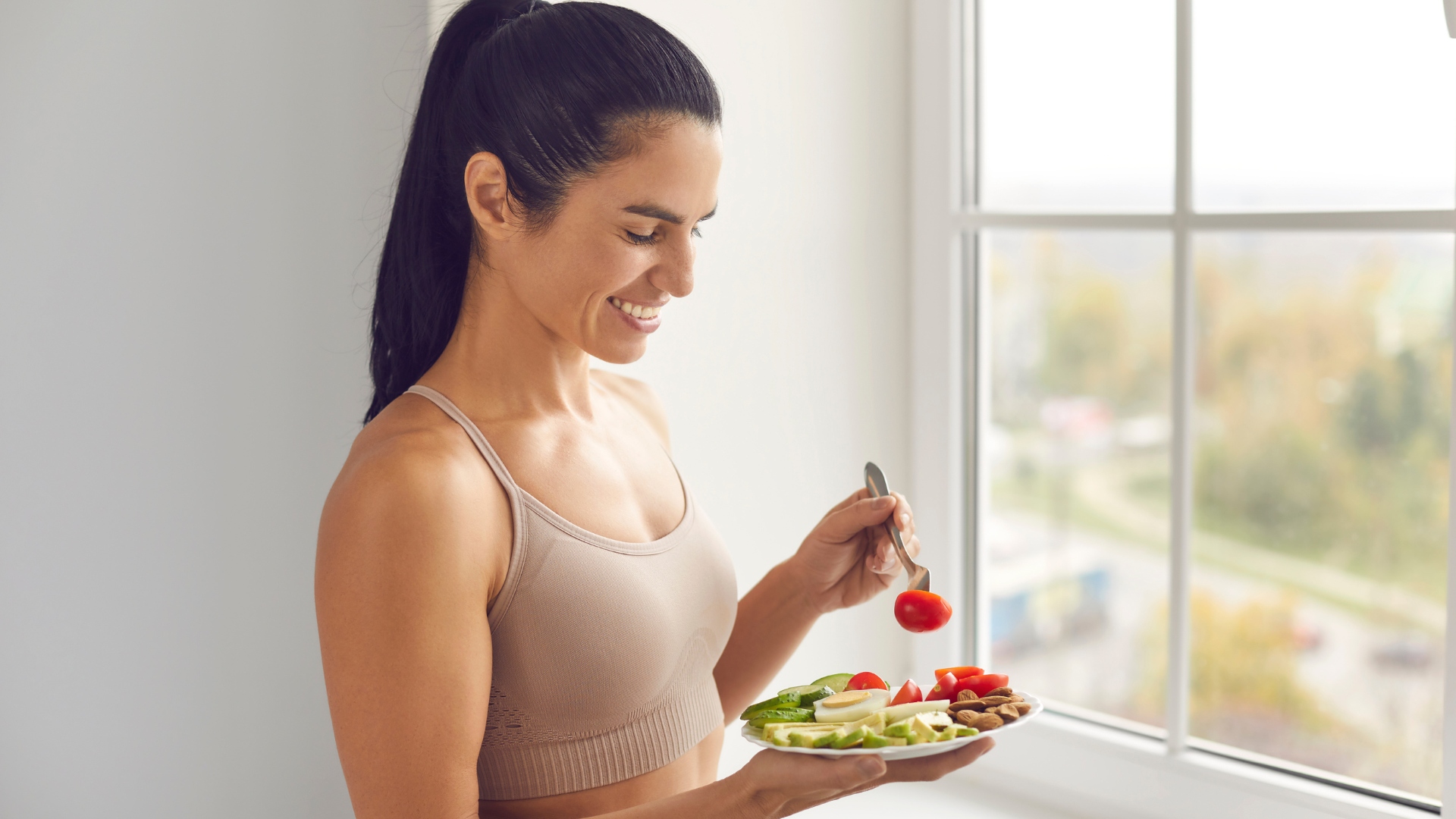
Nutrition plays a vital role in how well you perform during a workout. Eating the right foods at the right time can boost your energy, improve endurance, prevent fatigue, and help you recover faster. On the other hand, skipping meals or eating poorly timed foods may leave you feeling sluggish or uncomfortable. In this guide, we’ll explore when to eat before exercise and what foods give you the best results.
Table of Contents
Why Pre-Workout Nutrition Matters
Your body needs fuel to power through exercise. The right meal or snack:
-
Provides energy for muscles
-
Enhances performance and stamina
-
Prevents muscle breakdown
-
Reduces the risk of fatigue, dizziness, or injury
-
Supports better recovery after your workout
When to Eat Before a Workout
2–3 Hours Before Exercise
A balanced meal 2–3 hours before your workout allows enough time for digestion. This should include complex carbohydrates, lean protein, and healthy fats. Examples:
-
Brown rice with chicken and vegetables
-
Whole-grain sandwich with turkey and avocado
-
Oatmeal with nuts and fruit
30–60 Minutes Before Exercise
If you’re closer to workout time, focus on a light snack that is easy to digest and primarily carbohydrate-based, with a little protein. Avoid heavy fats and too much fiber, as they may cause stomach discomfort. Examples:
-
Banana with a spoon of peanut butter
-
Greek yogurt with berries
-
Energy bar or smoothie
Early Morning Workouts
If you exercise right after waking up and don’t have much time, choose something small and quick-digesting:
-
A banana or apple
-
A slice of toast with jam
-
A small protein shake
What to Eat Before a Workout
Carbohydrates – The Primary Fuel
Carbs are broken down into glucose, which fuels your muscles. Eating carbs before a workout helps improve endurance and prevents your body from breaking down muscle for energy. Good options:
-
Oats
-
Rice or quinoa
-
Whole wheat bread
-
Fruits like banana, apple, or berries
Protein – Muscle Support and Recovery
Protein before a workout helps reduce muscle breakdown and kick-starts muscle repair. Pairing protein with carbs is highly effective. Good options:
-
Eggs
-
Greek yogurt
-
Cottage cheese
-
Whey protein shakes
Fats – For Longer Workouts
Healthy fats digest slowly and provide sustained energy for longer, low-intensity workouts. They should be consumed in moderation before exercise and best included if you’re eating 2–3 hours before. Good options:
-
Avocado
-
Nuts and seeds
-
Olive oil or nut butters
Hydration Before Exercise
Don’t forget fluids. Dehydration reduces performance and increases fatigue.
-
Drink 1–2 glasses of water about 2 hours before your workout.
-
Sip small amounts of water 20–30 minutes before exercising.
-
If you’re doing a long or intense session, consider a sports drink with electrolytes.
Foods to Avoid Before a Workout
-
Heavy, greasy foods (fried items, burgers, pizza)
-
Too much fiber (beans, broccoli, lentils) right before exercise
-
Sugary snacks that cause a blood sugar spike and crash
-
Excess caffeine, which may cause jitters or stomach upset
Sample Pre-Workout Meal & Snack Ideas
Meals (2–3 hours before):
-
Grilled chicken with quinoa and vegetables
-
Salmon with brown rice and spinach
-
Whole-grain pasta with tomato sauce and lean protein
Snacks (30–60 minutes before):
-
Smoothie with banana, berries, and whey protein
-
Apple slices with almond butter
-
Handful of trail mix (nuts + dried fruits)
The key to pre-workout nutrition is timing and balance. Aim to eat a meal 2–3 hours before exercise if possible. If you’re short on time, choose a light, carb-focused snack 30–60 minutes before. Always include a combination of carbohydrates for energy, protein for muscle support, and fluids for hydration.
Experiment with different foods and timings to see what works best for your body. Proper pre-workout nutrition will not only improve performance but also help you recover faster and get more out of every session.


